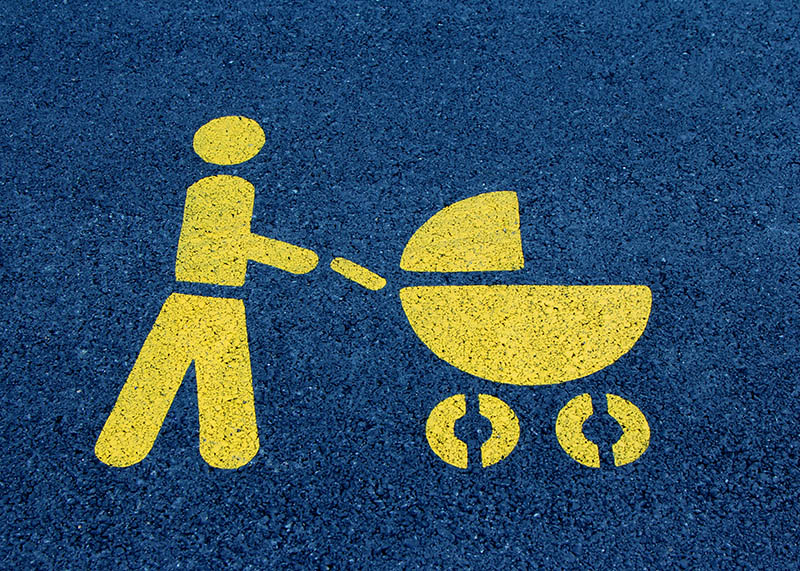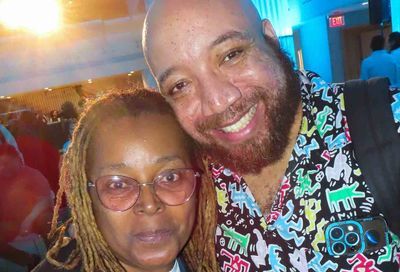Children Caught in the Middle
In Virginia and across the nation, conservatives are pushing fights over gay adoptive parents
Each year, more than 100,000 children in the United States foster care system are waiting for adoptive homes, according to the U.S. Department of Health and Human Services (HHS). And more than two million gay and lesbian people are interested in adopting a child, according to a 2007 study by the Williams Institute of UCLA.
But legislative and court battles are being waged in several states over whether gay and lesbian people—individually or as couples—should be allowed to adopt. And the outcomes have been mixed.
Under a bill signed April 18 by Arizona Gov. Jan Brewer (R), a married man and woman will receive ”placement preference” in adoption over a single adult, if all relevant factors are equal. Unmarried individuals may adopt, but only a married husband and wife may adopt jointly. Marriages of same-sex couples are not recognized in the state.
And the Virginia State Board of Social Services voted 7-2 on April 20 to reject a proposal of former Gov. Tim Kaine (D) that would have prohibited discrimination against potential adoptive parents on the basis of sexual orientation. Gov. Bob McDonnell (R) recommended that they disapprove the proposal, although the board was not obligated to follow him.
Two other senior state officials had also expressed their opposition to the proposal. Republican Attorney General Ken Cuccinelli’s office issued a memo April 12, written by Senior Assistant Attorney General Allen Wilson. The memo said the proposed change goes against state law and public policy and the Board ”lacks the authority to adopt this proposed language.” The memo ”revises and amends” Wilson’s memo from December 2009 (during Kaine’s governorship), in which he said the Board did have that authority.
And Virginia Social Services Commissioner Martin Brown, a McDonnell appointee, also advised against the proposed regulations. Brown is the former executive director of The Family Foundation of Virginia, a conservative organization that includes among the partners listed on its Web site the Family Research Council, classified as an anti-gay hate group by the Southern Poverty Law Center.
In Illinois, however, a state Senate committee killed a bill on April 11 that would have allowed religiously affiliated child welfare agencies to refuse a person’s adoption or foster home application if the person was in a civil union.
Court rulings on adoption by same-sex couples have varied. The Arkansas Supreme Court ruled April 7 that the state’s ban on adoption by unmarried, cohabiting couples violated the state constitution. Last September, a Florida appeals court overturned that state’s ban on adoption by gay and lesbian individuals.
But the U.S. 5th Circuit Court of Appeals ruled April 12 that the Louisiana state registrar did not violate the U.S. Constitution by refusing to issue a new birth certificate to a Louisiana-born child adopted in New York by a gay couple. Louisiana officials said to do so would violate the state’s public policy of not allowing joint adoptions by unmarried couples.
Utah also has a legislative ban against adoption by unmarried couples. Mississippi has a ban on adoption by same-sex couples. And while Michigan has no statutory ban, state courts have ruled that unmarried individuals may not jointly petition to adopt.
In Arizona, Virginia, Louisiana, Utah, Mississippi and Michigan, nearly 12,000 children in foster care are eligible and waiting for adoptive homes, according to the most recent (2009) data from HHS.
Jennifer Chrisler, executive director of the Family Equality Council, said that ”the overarching picture right now is looking a little gloomy at the state level.”
But Chrisler added that the adoption battles are in part because of ”a growing awareness of the issue of LGBT people and their ways of creating family,” combined with an ”opportunistic moment” for conservative politics. Conservatives are using the opportunity ”to push through as much of their conservative agenda as they can.”
She sees their actions as ”a serious threat” to finding homes for children who need them.
Ellen Kahn, director of the Human Rights Campaign’s (HRC) Family Project, said that society is at a ”threshold moment in child welfare,” when people have to move beyond old beliefs and traditions, just as they did with adoption by single parents and interracial couples, among others.
But she thinks the issue has hit ”the tipping point” with regard to adoption by LGBT parents. Research has shown, she said, that ”there’s absolutely no reason to discriminate.”
”Because this issue is so politicized,” however, she said, it gets pulled out of the context of child welfare. This slows down ”a natural, organic progression” towards acceptance of LGBT adoptive parents among child welfare professionals.
Sarah Warbelow, HRC’s state legislative director, said the issue of adoption is also tied up with the issue of relationship recognition for same-sex couples, especially in states that ban all forms of relationship recognition—not only marriage—for such couples. Adoption agencies in those states, Warbelow said, are often then ”reluctant to allow couples to even consider adopting, because they don’t know how to interpret the language.”
Currently, 18 states have such comprehensive bans. Only one of those, Arkansas, after its April 7 state Supreme Court decision, allows same-sex couples to jointly petition to adopt statewide.
And while only 16 plus the District of Columbia do allow same-sex couples to jointly petition to adopt, Kahn said she works with adoption agencies in states that do not permit joint adoptions by same-sex couples and that many of those agencies will nevertheless treat same-sex prospective parents like a couple, even though they know only one will become the legal parent.
That kind of attitude, she says, ”keeps moving regardless of who’s in office” and, ”over time, changes the landscape agency to agency and makes a big difference for families.”
On a federal level, the Family Equality Council announced in an e-mail to supporters April 22 that U.S. Rep. Pete Stark (D-Calif.) would on May 3 reintroduce the Every Child Deserves a Family Act, which would withhold federal adoption and foster care assistance funds from states that discriminate against LGBT people in foster placements or adoption. He introduced a similar bill last session, but it died in committee.
And the U.S. Department of Health and Human Services (HHS) issued a memo April 6 encouraging child welfare agencies to better serve the needs of ”lesbian, gay, bisexual, transgender and questioning (LGBTQ) youth” in the foster care system, and calling LGBT prospective parents ”a largely untapped resource” for providing foster or adoptive homes to LGBTQ young people.
© 2011 by Keen News Service. All rights reserved.
Support Metro Weekly’s Journalism
These are challenging times for news organizations. And yet it’s crucial we stay active and provide vital resources and information to both our local readers and the world. So won’t you please take a moment and consider supporting Metro Weekly with a membership? For as little as $5 a month, you can help ensure Metro Weekly magazine and MetroWeekly.com remain free, viable resources as we provide the best, most diverse, culturally-resonant LGBTQ coverage in both the D.C. region and around the world. Memberships come with exclusive perks and discounts, your own personal digital delivery of each week’s magazine (and an archive), access to our Member's Lounge when it launches this fall, and exclusive members-only items like Metro Weekly Membership Mugs and Tote Bags! Check out all our membership levels here and please join us today!





















